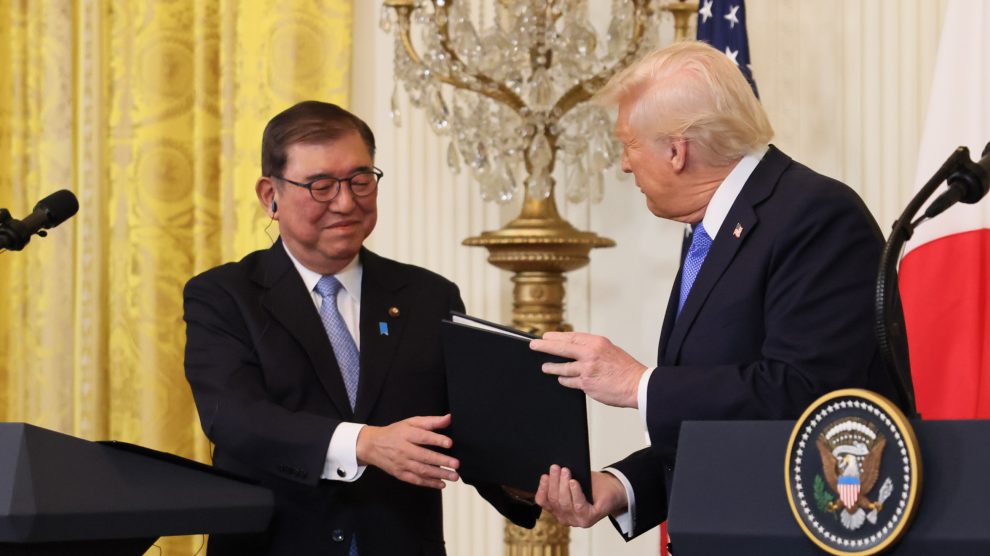Strengthening alliances, recalibrating security. Following a recent White House meeting between US President Donald Trump and Japanese Prime Minister Shigeru Ishiba, Satoru Nagao—a fellow at the Hudson Institute in Tokyo—shared insights into the future of U.S.-Japan relations, the Indo-Pacific’s role in US foreign policy, and Japan’s evolving engagement with NATO.
- As Tokyo prepares to bolster its cooperation with NATO amid shifting security dynamics, these developments bear significant implications for regional stability and Rome’s grand strategy.
A global partnership. The U.S.-Japan relationship remains anchored in avoiding trade frictions while bolstering Japan’s defence budget—a key factor for regional stability.
- The Indo-Pacific remains central to Trump’s foreign policy, with the Quad and AUKUS serving as strategic pillars.
- Japan’s growing cooperation with NATO, initially underscored by the Ukraine crisis, is now being broadened as a strategic priority, enhancing burden-sharing among allies.
- Tokyo is also recalibrating its economic stance toward China, having significantly reduced its business footprint over the past decade.
Indo-Pacific security dynamics. According to Nagao, Trump’s approach has reinforced frameworks such as the Quad and AUKUS, underscoring the necessity of alliances in countering rival regimes.
- With China emerging as the primary strategic competitor, these alliances are increasingly vital for maintaining regional balance.
NATO and Japan. Nagao thinks Japan is expected to deepen its engagement with NATO in line with Washington’s push for allies to assume greater security responsibilities.
- The Ukraine crisis has set a precedent for NATO-Japan cooperation, reinforcing Tokyo’s role in global security efforts.
Perspectives on Ukraine and US strategy. Nagao said Trump’s initial promise to end the conflict within 24 hours has since been adjusted, and his timeline has been extended by six months.
- This pragmatic shift reflects Russia’s current battlefield advantage, while an anticipated Ukrainian counteroffensive might open new avenues for negotiation.
Italy’s point of view. According to Nagao, the balance in U.S.-Japan relations is critical for Italy, which is keen to foster ties with Tokyo as a key partner in the eastern Indo-Pacific—mirroring New Delhi’s role in the West.
- At the G7 Summit in Puglia, Italian Prime Minister Giorgia Meloni and Japanese Prime Minister Fumio Kishida approved a Bilateral Action Plan outlining priorities for 2024-2027 within the framework of their Strategic Partnership, first announced in January 2023.
- This initiative underscores Italy’s commitment to deepening cooperation with Japan in security, trade, and technological fields—through projects such as GCAP—further reinforcing the broader Indo-Pacific framework.
(Photo: X, Kantei)





